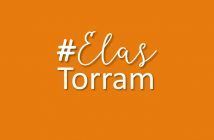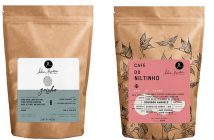The new point of sale is located in the neighborhood of Cambuí and will open in about two weeks
The architects’ couple, Francisco Massucci Silveira and Cristina Raszl Cinesi, opened Virgínia Coffee Roasters coffee shop almost two years ago in Campinas, in the neighborhood of Barão Geraldo, near the University of Campinas www.unicamp.br/unicamp and, perhaps for this very reason, the business has prospered so much in such a short time.
Proof of this is that after two weeks they will be inaugurating the second point of sale in the city, this time round in partnership with artisan bakery Casca Grossa, in the district of Cambuí, considered the “Jardins” of Campinas.
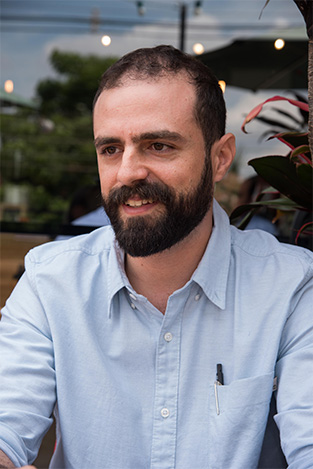
Francisco M. Silveira – Virginia Coffee Roasters
If the first point of sale received the customers from the German Bakery downstairs, which has been for 25 years in the city, the new venture will count on the partnership with Casca Grossa, which has a profile that has even more to do with specialty coffees. “The investment was made from the profits with the first point of sale. We will also have an exclusive room for courses and cuppings. The next steps will be to explore the potential of the state countryside market, in cities such as Sorocaba, Jundiaí and Americana, which are still totally unexplored in terms of specialty coffees,” the entrepreneur explains.
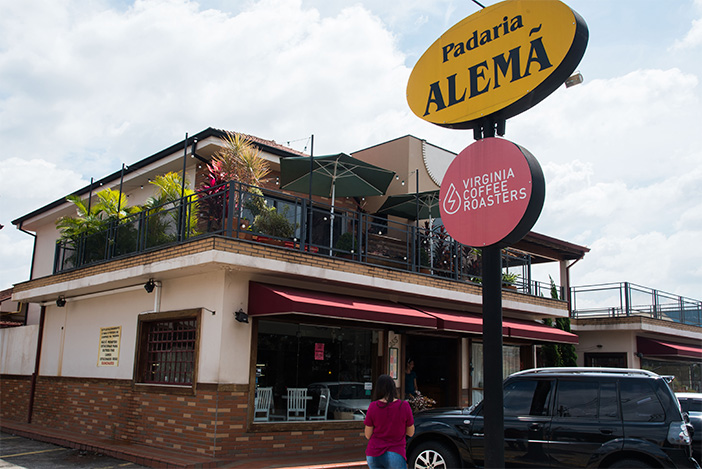
Padaria Alemã – Virginia Coffee Roasters
The Virginia Coffee Roasters differential
Francisco is Q-Grader and someone passionate about process quality. He took a roasting course with Master Ensei Neto and a CQI one with Joel Shuler. He has developed a more roasted identity in the Portland style, which is an average American roasting, different from the dictatorship of the light roasting in Brazil, thanks to the influence of Tim Wendelboe. “In the US, coffee shops offer all kinds of roasting, and it is the customers who choose. The grain quality is what really matters”, he exemplifies. He also points out that the darkest roasting has a greater demand among the Asians who attend the coffee shop and also have sold enough to other coffee shops, which are now starting in the world of specialty coffees.
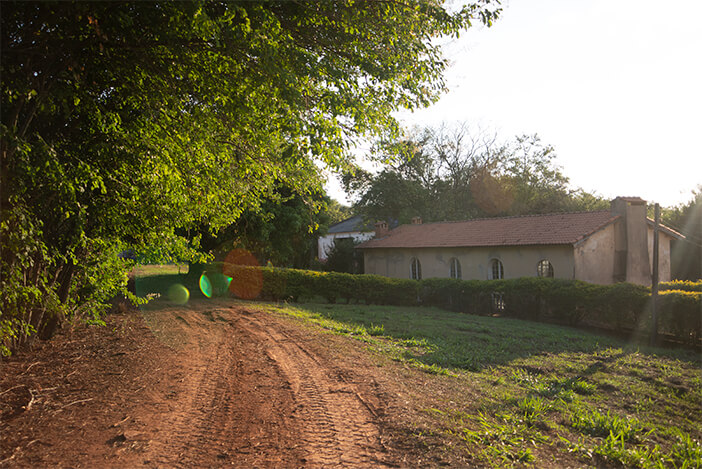
Foto: Virginia Coffee Roasters
“Here in the coffee shop, more than 85% of the 800 cups of coffee we serve are filtered, mainly based on the Hario V60, Chemex methods, in the metal filter and French Press”, says Cristina, responsible for employee training and for sales. In addition to architecture, before working with specialty coffees, Cristina dedicated herself to the hotel industry, having even been at boutique hotel Emiliano www.emiliano.com.br, in São Paulo. “We offer courses and train our staff, including information on coffee production at the Santa Virgínia farm. Our collaborators, as a matter of fact, participate in a whatsapp group made by the farm staff. Thus, they can directly ask the employees about the coffee characteristics, without having to go through me or Francisco,” she says.
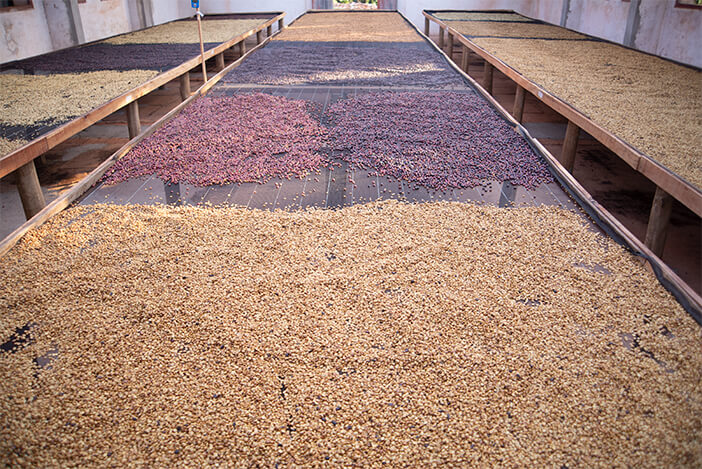
Foto: Virginia Coffee Roasters
In the coffee shop, they roast coffee so that their customers can drink at the same time or take it home. The Virginia Coffee Roasters is 52 square meters and has 22 seats.
The Santa Virgínia farm
Another business owned by Francisco’s family is the Santa Virgínia farm, located on the border of the state of São Paulo with Paraná, in the city of Sarutaiá, the Sorocabana region. Purchased by her father about 20 years ago, it owns 250 acres and 320,000 feet of coffee. Once they acquired the property, they planted coffee, but there was no concern to improve it in the post-harvest. In 2014, after noticing the growth of interest in specialty coffees, they decided to change the focus and currently, almost all of the production is specialty. There, they have cultivated about 10 different varieties – among them, red Obatã, yellow Catuaí, red Catuaí, red Icatu, red Acaiá and yellow Catucaí – and work with natural drying processes, peeled or washed cherry.
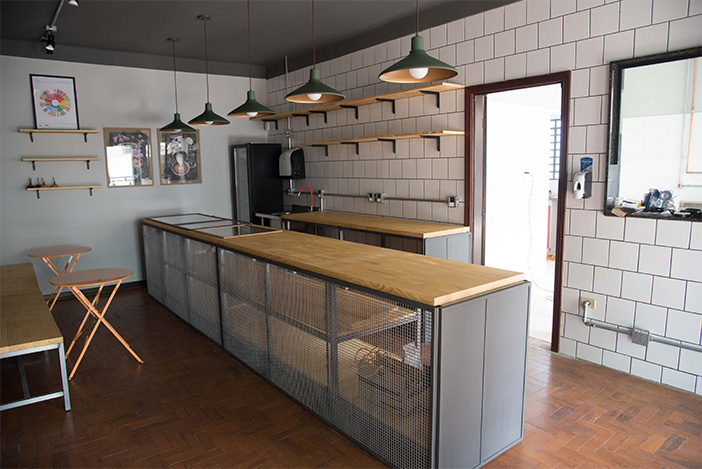
Padaria Alemã – Virginia Coffee Roasters
They have invested a lot in technology. As an example of that, one may notice they have been developing modular African beds, whose advantage will be in terms of assembling or disassembling them quickly, according to the need. They are being used along with the greenhouses whose constant temperature, according to Francisco, is more important than the incidence of sun drying the coffees. “It is a very widespread technique in El Salvador, where I took a drying course. Since we do not have roasting and drying profiles yet, we are developing this other side. In the future, I wish to see the farm working as a beverage industry, with profiles established for each stage of the work,” he confided.
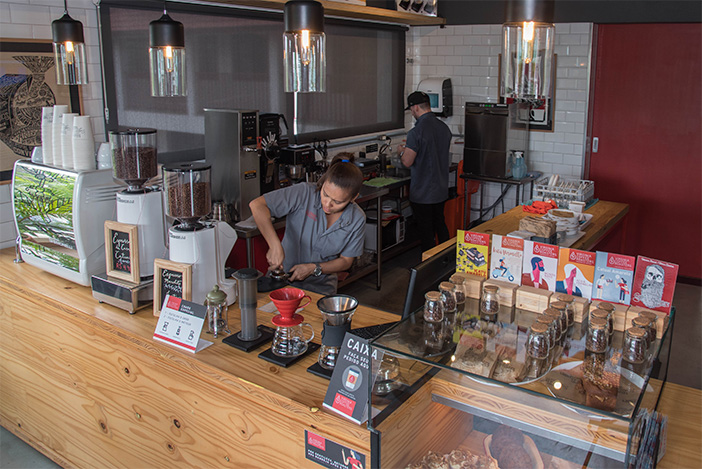
Padaria Alemã – Virginia Coffee Roasters
Part of the harvest is already mechanized and, to improve the process, they bought a solution from HC Tecnologia, from São Bernardo do Campo, which is an electronic selector of cherries, whose result is as good as or better than the harvest manual. “We need to adapt, because with our tax and labor laws, if we do not mechanize whatever we have, we simply will not be able to have any earnings,” he says.
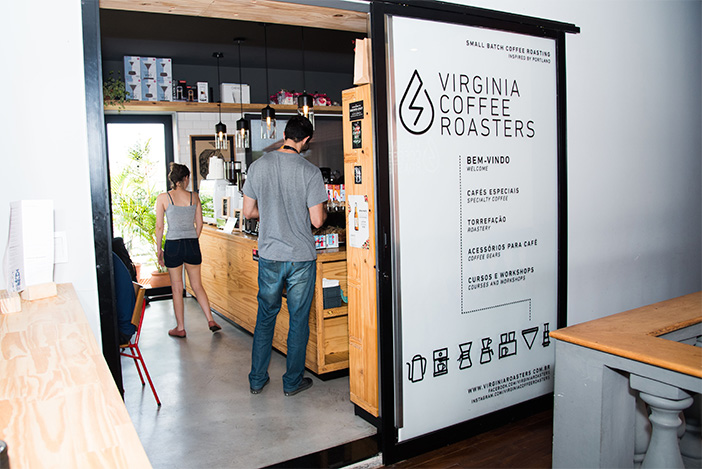
Padaria Alemã – Virginia Coffee Roasters
The roaster, which is also on the farm, has been roasting about 20 tons of the coffee house at the farm alone, in this year. “But to start making money, one has to roast about 50 tons. Next month, we are getting a new equipment, a 15kg roaster to help in the production,” he says.
In São Paulo, it is possible to buy coffee from Virginia Coffee Roasters at Tem Café www.temcafe.com.br, in the Cupping Café, Clemente Café and Soul Café coffee shops. Other state enthusiasts will have to wait a little longer, until the brand marketplace is ready.
Picture and video: Clodoir de Oliveira


